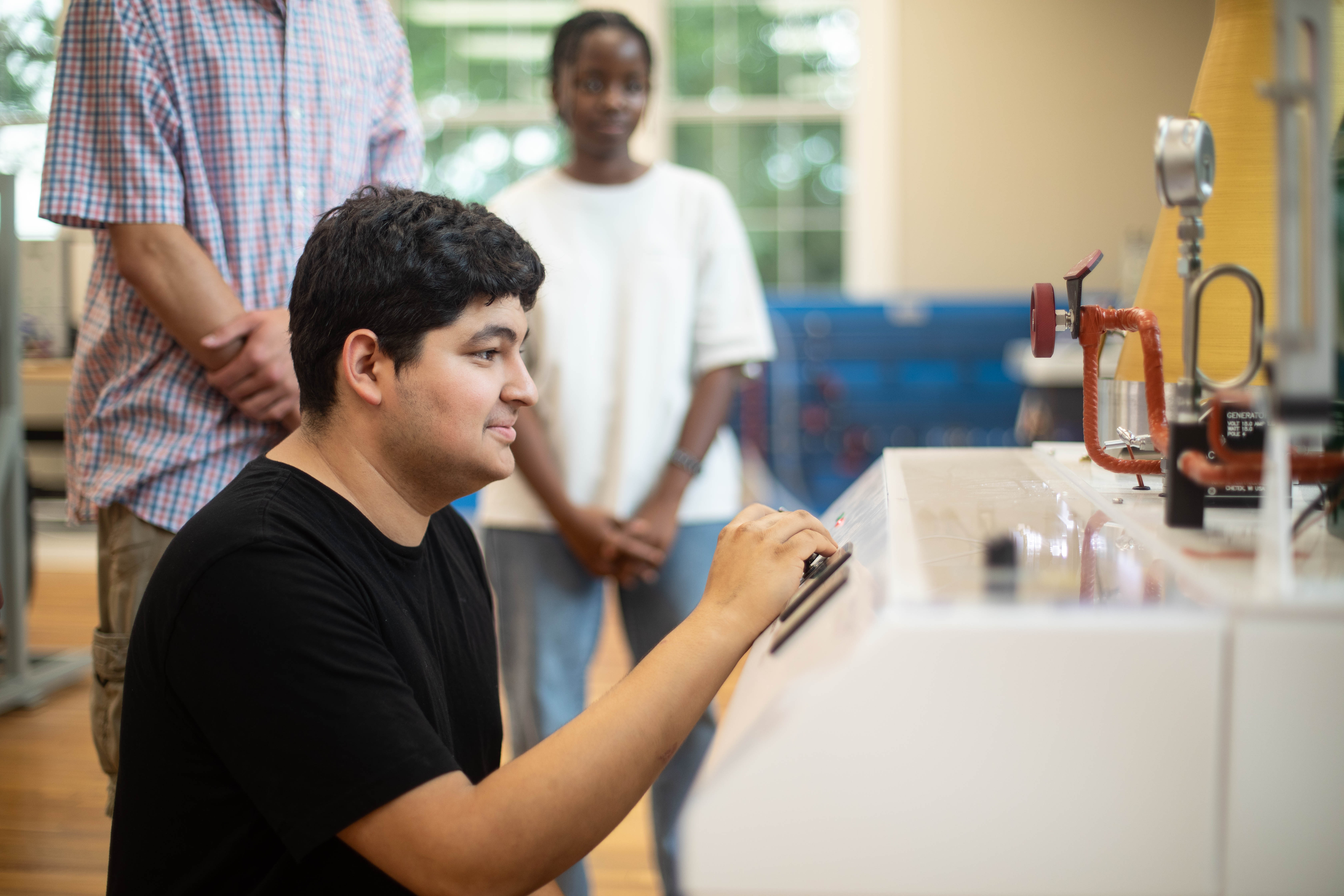
Engineering
What Is Engineering?
Is Engineering for me?
Engineering @ Southern
The engineering program at Southern prepares students for rewarding careers in the
engineering industry or for future graduate studies. Students gain engineering design
experience through interactive and practical labs, industry internships, and capstone
projects. Through service-oriented projects, faculty and students at Southern contribute
to the well-being of communities.
How do I know if engineering is right for me?
Engineers are known as problem-solvers, who build, design, and create new things as
solutions. If you exhibit any of the following:
- Creative, curious, and technically/analytically-minded
- Enjoy problem-solvering and being hands on
- Strong interest in science and math
- Enjoy multidisciplinary environments and jobs
Find the concentration that is right for you

Computer Engineering
Computer Engineering focuses on the development of the hardware and software components that drive modern technology. In Southern’s computer engineering concentration, students are exposed to microcontrollers, real-time embedded systems, printed circuit board design, computer architecture, digital and analog electronics, robotics, programming, and operating systems.
Learn More
Electrical Engineering
Electrical Engineering focuses on the design and application of equipment related to electricity. In Southern’s electrical engineering concentration, student’s deal with power generation and transmission systems, analog and digital electronics, signal processing, and robotics and electromechanical devices.
Learn More
Mechanical Engineering
Mechanical Engineering focuses on systems in motion, mechanical engineering investigates topics such as mechanical power transfer, engines, material deformation, heat transfer, and fluid motion. In Southern’s mechanical engineering concentration, students are exposed to a variety of engineering systems encountered in power generation, HVAC, refrigeration, robotics, manufacturing, and many other areas.
Learn MoreOur Program Educational Objectives
Design: Apply the principles and skills of engineering in professional practice or advanced study.
Serve: Communicate with clarity, act with integrity, and labor in humble service to God, family, church, employer, colleagues, and society.
Frequently Asked Questions
What should I plan on taking in high school to be prepared for engineering? What should I take at another school (e.g., a community college) before transferring to Southern?
Exposure to calculus in high school is recommended and highly encouraged.
If starting with classes at a community college, it is recommended that students consult with a faculty advisor at Southern prior to registering for classes to ensure the best possible transfer pathway.
How long does it typically take to get a degree in engineering?
According to nation-wide institutional data, less than half of engineering graduates complete their degrees in four years.
What kinds of internships and research opportunities do students have?
If you're interested in continuing your education to the graduate level, research experiences provide an excellent chance to get a taste for grad school and engineering research.
Will I need a Master's degree to get a job as an engineer?
How hard is it to get into graduate school after earning my bachelor's?
Additionally, many graduate engineering programs require applicants to take the Graduate Record Examination (GRE) for graduate school applications.
How much money do engineers make?
What should I expect as a new student coming into engineering?
The first year or two you’ll spend a lot of time with math and sciences as well as introductory engineering courses, then move into your specialized concentration. Students should be prepared for a rigorous program that gets them ready for the field of engineering.
Is there a specific laptop I need to purchase for engineering?
- Windows operating system (Macs are much less common in the engineering field outside programming/computer science and often do not support engineering-specific software products that we use)
- i5 processor (or equivalent – e.g., Ryzen 5)
- 8 GB of RAM at an absolute minimum (16 GB is preferable, 32 GB is typically unnecessary)
- 256 GB for a hard drive at an absolute minimum, 512 GB SSD is preferable
- Discrete graphics card is not necessary, but makes CAD and simulation programs faster to run